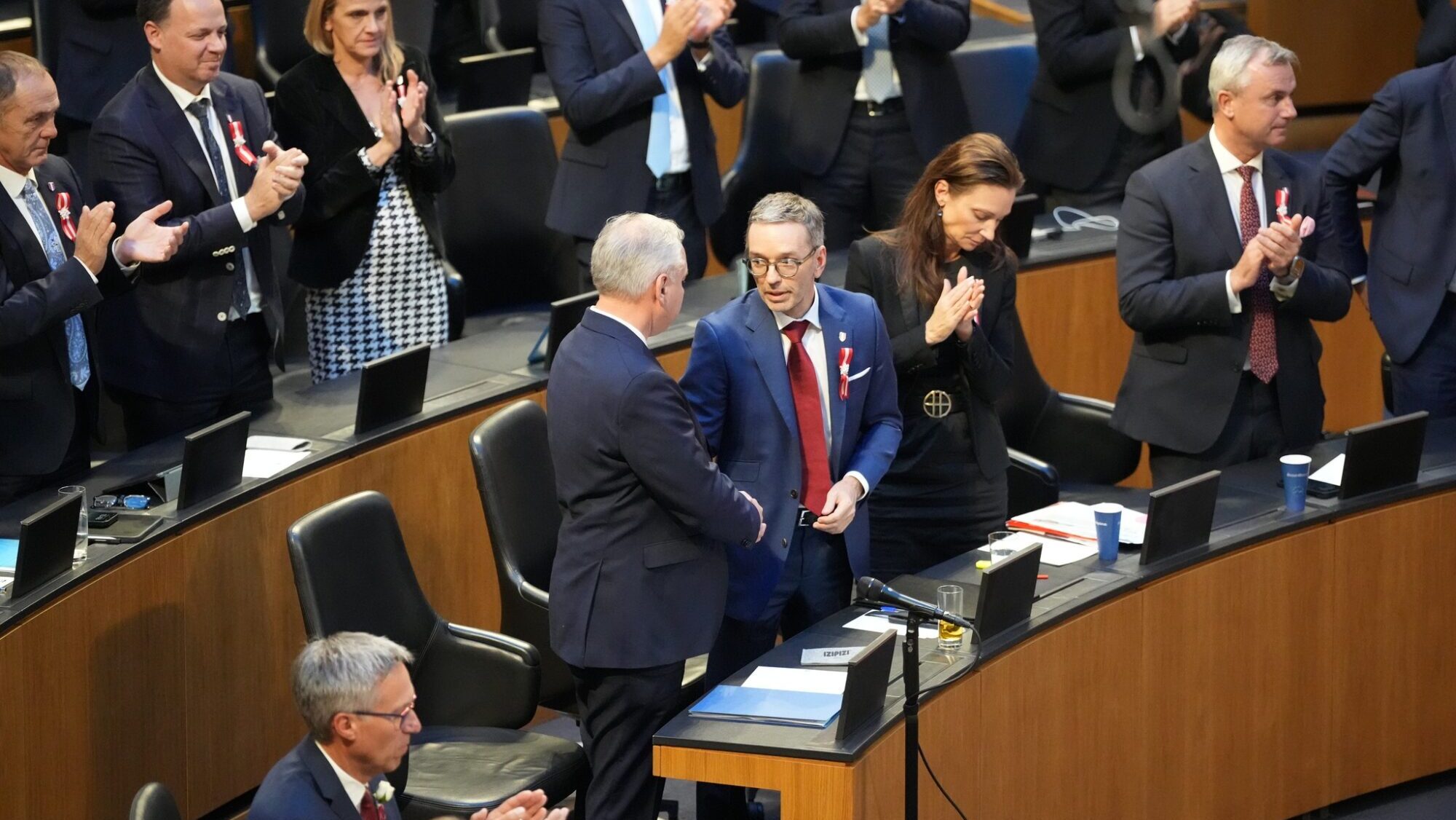
Herbert Kickl, center, in the Austrian parliament.
Photo: Herbert Kickl on Facebook, 25 October 2024
The Austrian parliament on Wednesday, December 11th, approved a request from the public prosecutor’s office to lift the immunity of Herbert Kickl, the leader of the antiglobalist, right-wing Freedom Party (FPÖ), in what the party is calling a manoeuvre by the ruling elites to weaken their political rival.
MP Christian Ragger of the FPÖ called the move an “ideologically driven persecution” of the party.
The case dates back to when the FPÖ was in a coalition with the centre-right People’s Party (ÖVP). According to the accusations, between 2018 and 2019, the tabloid Österreich received lucrative adverts, paid for by public funds, in exchange for favourable media coverage of the FPÖ. The adverts were allegedly commissioned by then-Interior Minister Kickl and other members of his party, including then-party leader Heinz-Christian Strache.
The prosecutor’s office responsible for economic crime and corruption (WKStA) said in April that it had launched an investigation into Kickl and several former government members.
The party maintains that the advertising contracts had been awarded objectively, and that the sole purpose of the investigation was to harm the FPÖ. They pointed to the fact that the WKStA had initially refrained from investigating the matter, but were urged on by the Vienna Public Prosecutor’s Office, which is, according to the FPÖ, “infiltrated” by the centre-right ÖVP party.
The owner and editor of Österreich, Wolfgang Fellner, also denied any wrongdoing.
A complaint filed in July by a then-lawmaker from the ÖVP party about Kickl’s testimony to a parliamentary committee in April alleged that Kickl lied about various issues, including advertisements in print media paid for by the FPÖ. Following the lifting of his immunity, the prosecutor’s office can now question Kickl relating to that complaint.
The timing of the parliament’s decision—backed by all the other parties—to lift Kickl’s immunity is not surprising: the FPÖ is more popular than ever before, with the latest polls revealing that it now has the support of 36% of the electorate. It also recently inflicted a crushing defeat on the ÖVP, taking 35% of the votes in the state election in Styria.
The party’s steep rise in the polls may have been fuelled by the anger felt by many Austrian voters against the establishment parties and the Austrian President Alexander Van der Bellen, who refused to allow the FPÖ to try to form a government, despite the party winning the national elections in September with 29% of the votes.
All the other parties in the parliament have ruled out cooperating with the FPÖ, despite voters clearly signalling at the elections that they would prefer a centre-right government consisting of the FPÖ and ÖVP to rule Austria, with an emphasis on stricter anti-immigration policies.
The leader of the ÖVP, Karl Nehammer, has also rejected working together with Herbert Kickl and is now negotiating with the Social Democrats and the liberal NEOS party to form Austria’s first three-party government.
The rise of the FPÖ in the polls naturally coincides with the decline of the establishment parties: the ÖVP is polling at 21% (a drop of 5 points compared to its election result in September) and the Social Democrats are in third place at 19% (a two-point drop).
Referring to the opinion poll, Herbert Kickl said in a Facebook post on Friday, December 13th, that the poll results are loud and clear, “Austrians have a good sense of who has their best interests at heart and who is only interested in their own power.”
The investigation into Kickl follows a long line of cases in Europe where popular patriotic-sovereigntist leaders are being persecuted by their political enemies. Marine Le Pen in France might be banned from running for president; Matteo Salvini in Italy could be imprisoned for protecting his country’s borders; and in Germany, the anti-immigration AfD party has been threatened with being banned.
